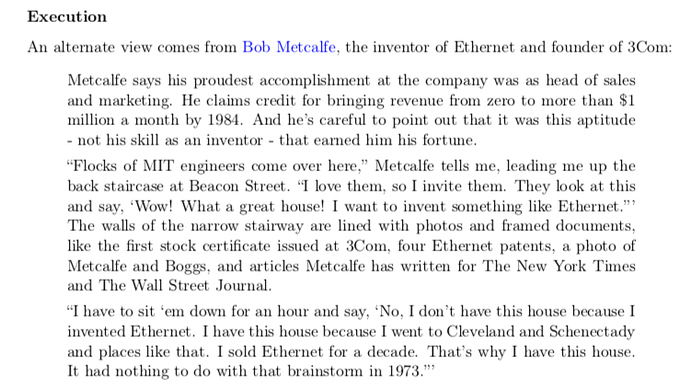I’m in the final chapters of The Dream Machine by M. Mitchell Waldrop. This book is wild. It’s a comprehensive history of the early days of computing, anchored around the career of J.C.R Licklider. It’s filled with digressions on individuals careers and academic lineages, how people move from project to project and how the ideas they push developed.
It’s fascinating to see ideas that I know by individual names, like “Von Neumann Architecture” or “Alan Kay’s Dynabook” in their full context, with all the other people who influenced and inspired them.
Takeaways
This book is a really interesting if taken as a guide for how to nurture a intellecutual revolution. The ideas that are in the mainstream of computing today (like the basic idea of personal computing) may seem inevitable, but individuals fought for them to become to. Specifically Lick (as he’s called throughout the book) worked to cultivate a community of people to further what he saw as the future of computing.
Questions
- Do you know any other books on this period (A People’s History of Computing in
the United States comes to mind.) - Would such a “revolution” be possible today? Does it depend on the people working on it being relatively few and concentrated?
- For this community, it’s interesting how much of this was nurtured by the academic institutions and the government. What are elements of those institutions we could emulate to achieve similar things?

